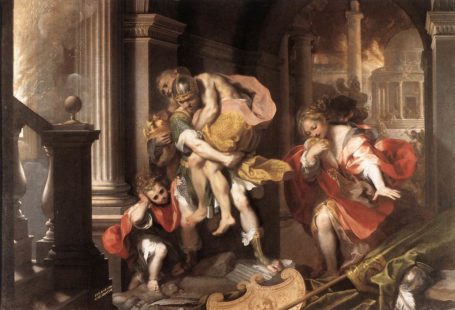David Hicks rightly notes that the classical educator sees, as one of his aims, educating the student both for the world’s fight and for the soul’s salvation. The seeming paradox of this goal is nowhere more apparent than in our modern era’s obsession with technological progress.
Writing in 1956, Romano Guardini provides some prophetic insights into the motivations and probable outcomes of the modern era’s obsession with progress and technology (an obsession toward which modern education is aimed). In his masterful work, The End of the Modern World, he writes,
The modern era was fond of justifying technology and rested its defense upon the argument that technology promoted the well-being of man. In doing so, it masked the destructive effects of a ruthless system. I do not believe that the age to come will rest with such an argument. The man engaged today in the labor of “technics” knows full well that technology moves forward in final analysis neither for profit nor for the well-being of the race. He knows in the most radical sense of the term that power is its motive—a lordship of all; that man seizes hold of the naked elements of both nature and human nature. His action bespeaks immense possibilities not only for “creation” but also for destruction, especially for the destruction of humanity itself. Man as a human being is far less rooted and fixed within his own essence than is commonly accepted. An the terrible dangers grow day by day. One the ‘autonomous’ state has broken all the bonds, it will be able to deliver the last coup de grâce to human nature itself. Man’s relations with nature have reached the point of final crisis: man will either succeed in converting his mastery into good—then his accomplishment would be immense indeed—man will either do that or man himself will be at an end.
Writing a decade earlier, in his classic work, The Abolition of Man, C. S. Lewis saw the same handwriting on the wall, describing the phenomenon Guardini noted as “the magician’s bargain,” in which we “give up [our] soul, [and] get power in return.” He states, “What we call Man’s power over Nature turns out to be as power exercised by some men over other men with Nature as its instrument.”
With modern education being what it is, the slave of descriptive science, the classical educator stands apart as one who “presupposes an order of human values; his understanding of the nature and proper end of man determines the purposes and the tasks he assigns to education.”((David Hicks, Norms and Nobility, 4.))
In other words, the classical educator has a prescriptive ideal toward which he educates his students, one that is rooted in his right knowledge of human nature and the true purpose of human existence.




